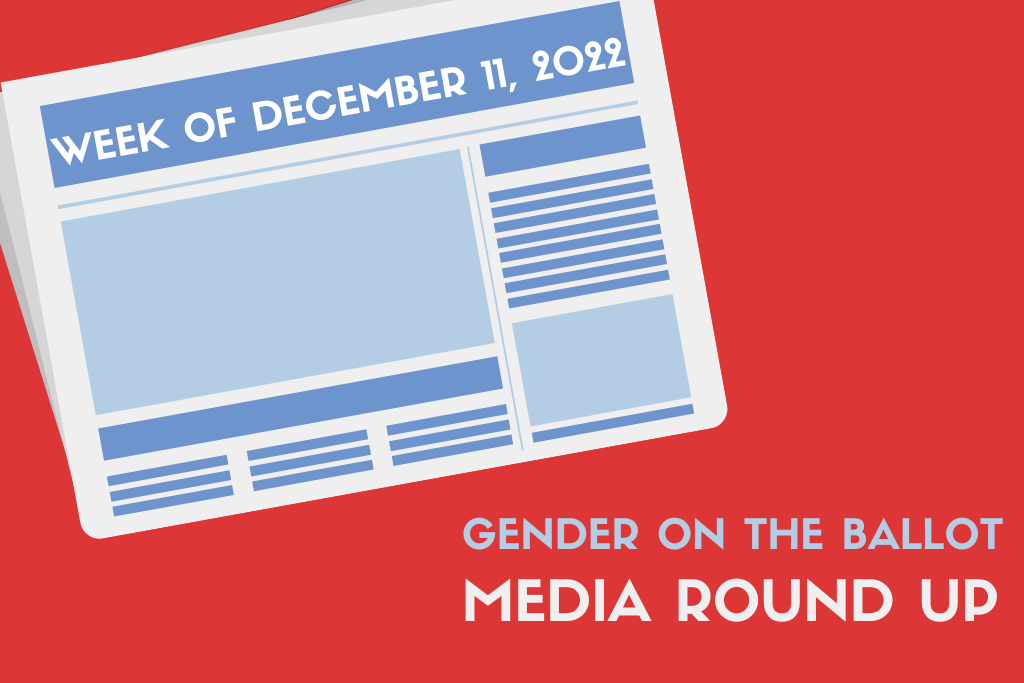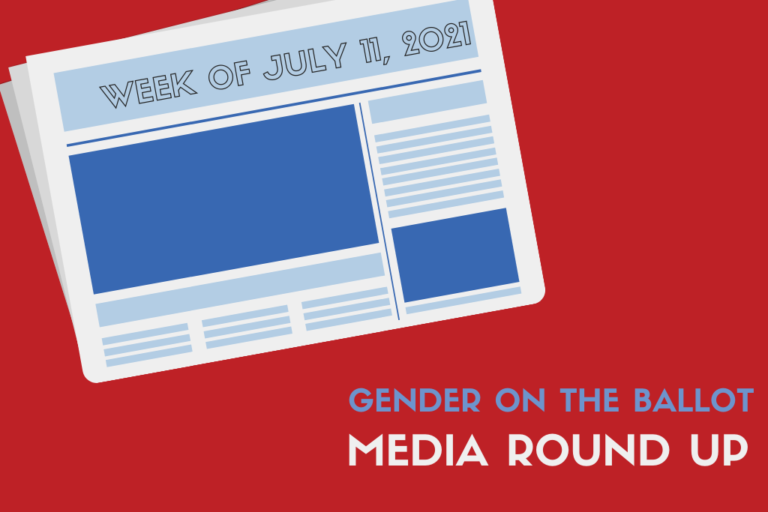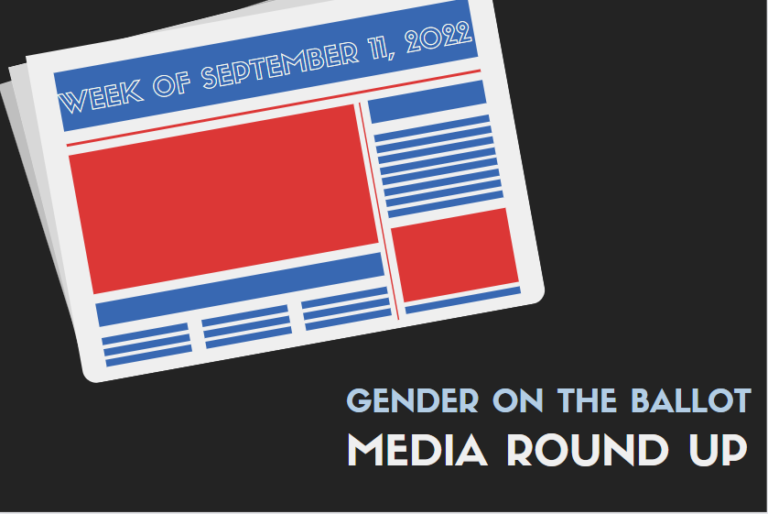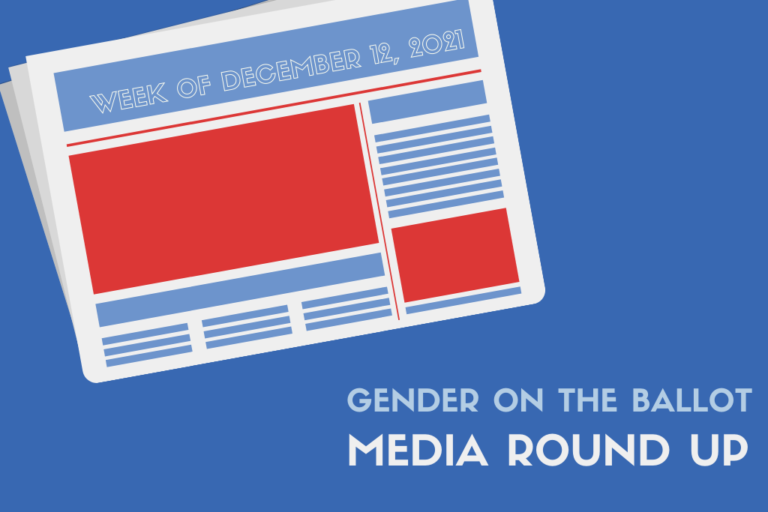Happy Friday! Welcome to our Media Round Up. Each week we’re collecting and sharing…
Media Round-Up: Week of December 11th

Happy Friday! Welcome to our Media Round Up. Each week we’re collecting and sharing our favorite gender + politics stories. Here’s what caught our eye this week:
Why The Fight For Today’s Women Leaders Is Balance, Not Access
Marissa Geist, Forbes
Women have fought for decades to have a seat at the table when it comes to executive leadership. While there is still much work to be done, women’s representation at the C-Suite level is on the way up. Some women leaders are now shifting focus from lack of represntation to the ability to have an abundant career with a rewarding home life. Research from Harvard shows that women are still the “project managers” of their homes. While 12% of male breadwinners do a majority of the household tasks, that pales in comparison to the 45% of female breadwinners who are responsible for the same thing. Research continues to show that society remains conflicted about women’s success.
Read the full story here.
Why the 2022 election was historic for Muslim women’s representation
Jasmine Mithani, The 19th*
Muslim women made history this election cycle with 153 Muslim candidates on the general ballot, according to a report released by Jetpac Resource Center and the Council on American-Islamic Relations. A record number of Muslim women ran for office in the midterm elections, and sixty-one percent of them won. Professor of Law at Rutgers University and author of “The Racial Muslim: When Racism Quashes Religious Freedom,” Sahar Aziz attributes the rise in representation for Muslim women in politics to two factors: immigration history and a decline in Islamophobia in the country.
Read the full story here.
From heart disease to IUDs: How doctors dismiss women’s pain
Lindsey Bever, Washington Post
Research supports the claim that women in pain are often not taken as seriously as men. This year, the American Heart Association reported women who visited emergency departments with chest pain waited twenty-nine percent longer than men to be evaluated for possible heart attacks. Doubts regarding women’s pain can affect treatment for a multitude of health issues: heart problems, stroke, reproductive health, chronic illnesses, adolescent pain, and physical pain. Studies also show that women are more sensitive to pain than men and are more likely to express it, which is often seen as an overreaction. Women also expressed that reproductive health complaints are commonly ignored.
Read the full story here.
Dictionary.com’s word of the year is ‘woman’
Harmeet Kaur, CNN
On Tuesday, Dictionary.com announced their word of the year: “woman.” According to the online reference site, the word choice was “inseparable from the story of 2022.” This year, people turned to the dictionary to make sense of complex issues regarding conversations around gender, identity, and language. Senior Director of Editorial at Dictionary.com John Kelly says that, “This year, the very matter of the definition of the word ‘woman’ was at the center of so many consequential moments, discussions, and decisions in our society. Our selection of ‘woman’ as the Word of the Year for 2022 – and how the word is defined, who is included in that definition, who the word applies and belongs to – highlights how important the work of a dictionary is, and how dictionaries can impact people’s lives.”
Read the full story here.
Black women played a critical role in helping to free Brittney Griner
Char Adams, NBC News
Last week, WNBA player Brittney Griner was released from Russian custody in a prisoner swap between the U.S. and Russia. Much of the work in Griner’s release can be attributed to Black women-led groups like Win With Black Women, the Southern Black Girls and Women’s Consortium, and the Black Women’s Leadership Collective. These groups held rallies, launched campaigns, circulated petitions, and constantly wrote to the Biden administration strongly urging for more work to be done for Griner’s release. Black women-led groups also came together to establish the We Are BG campaign, bring together activists, human rights groups, Griner’s legal team, WNBA officials and players, and many others to bring awareness to Griner’s situation.
Read the full story here.






